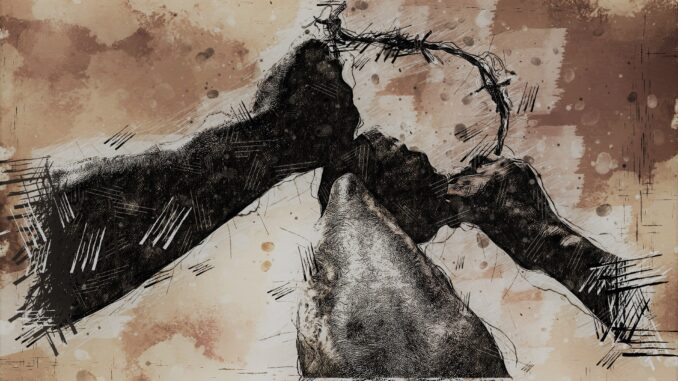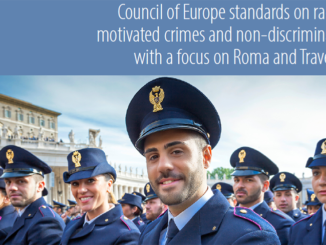
Call for Papers for the Critical Romani Studies Journal: Thematic Issue on the History and Legacies of Slavery in Romania
Editors of the Thematic Issue:
This thematic issue on the history and legacies of slavery in Romania is developed as part of a research project entitled MEMOROBIA- Memorialisation of Roma Enslavement in Territories of Contemporary Romania. The editors and editorial team are all researchers participating in the project. For more information, see https://www.mf.no/memorobia
Editors: Margareta Matache (FXB Center for Health and Human Rights, Harvard University, USA), Solvor Mjøberg Lauritzen (MF Norwegian School of Theology, Religion, and Society, Norway), Delia Grigore (Rroma Association “Amare Rromentza”, Romania); Jan Selling (Södertörn University, Sweden) and Maria Dumitru (MF Norwegian School of Theology, Religion and Society, Norway) .
About the Critical Romani Studies Journal:
Critical Romani Studies (CRS) is an international, interdisciplinary, peer-reviewed journal providing a forum for scholars to critically examine racial oppressions, different forms of exclusion, inequalities, and human rights abuses of Roma. Without compromising academic standards of evidence collection and analysis, the Journal seeks to create a platform to critically engage with academic knowledge production and generate critical academic and policy knowledge targeting—amongst others—scholars, activists, and policymakers.
About the Thematic Issue:
Global and European research, literature, and education have generally overlooked the system of slavery in territories of contemporary Romania (from the 1300s to the 1850s), and its place in the history of slavery, race, and racism. Yet, for half a millennium, the enslavers – the Crown, the Orthodox Church, and private enslavers (boyars)- owned and treated Roma people as property, being free to sell, donate, gift, or exchange enslaved people and exploit and punish them as they pleased (Achim, 1998, pp. 30-35). Roma children were enslaved at birth (Hancock, 2002, p. 21) and were often separated from their parents (Achim, 1998, p. 30). Some enslaved Roma escaped and fled to other countries or territories (ibid., p. 31), while others stood up to their enslavers. It was not until the last abolition act in 1856, that enslaved Roma people gained legal freedom (Hancock, 2002, p. 25). It is estimated that at the time of abolition, the number of freed people was approx. 250,000. Upon abolition, freed people did not receive any compensation or other forms of repair; instead, state institutions compensated the former enslavers (ibid.).
Although some basic historical facts about Roma slavery in Romania have been established, more research is necessary to understand the legacies of enslavement in education, health, and other domains of power and life; wealth disparities and economic losses; historical trauma; present-day consequences of slavery; and the role of the mainstream historical research and canon in distorting historical truth. Generally, research on the legacies and present-day consequences of slavery is almost non-existent (for exceptions, see Chang & Rucker-Chang, 2020; Grigore, 2019; Grigore, Neacșu & Furtună, 2007; Hancock, 2015; Matache & Bhabha, 2016, 2020, 2021; Selling, 2020). Furthermore, Roma slavery has been ignored in curricula and textbooks all over Europe. And in Romania, textbooks mention the plight of the enslaved Roma in a scarce, biased, and distorted manner (Cezara David, 2021).
In this thematic issue, we invite contributions focusing on the history and legacies of Roma enslavement in Romania. The contributions may address aspects such as:
- Critical historiographic analyses of previous research;
- Critical historical research on Roma uprising and resistance during slavery and abolition processes;
- Comparisons between slavery in Wallachia and Moldavia and slavery in Transylvania
- Present-day consequences of slavery on Roma’s wealth, health, education, or access to power and power resources;
- Gadjo-ness (Matache, 2016) and legacies of slavery in the Romanian cannons, wealth, culture, behaviors, narratives, or any other aspect of politics, policies, and life;
- Memorialisation and reparations;
- Formal and non-formal history education.
Submission Deadline: October 15, 2023
We invite several types of analyses:
- Academic articles that should be 6,000 to 8,000 words long
- Book reviews that should be 1,000 to 2,500 words long
- Papers on arts and culture, either shorter ones (1500-4000 words long) undergoing a simple review or properly peer-reviewed papers (6000-8000 words long).
- Work in progress: in exceptional cases, we may provide mentoring assistance to develop an article in terms of the content, argument, and academic style. Please indicate if your submission is a work in progress.
We especially invite submissions from Roma activists and scholars.
Submission Guidelines: https://crs.ceu.edu/index.php/crs/about/submissions
Please address all inquiries to Margareta Matache at mmatache@hsph.harvard.edu
Redaktionen
redaktionen@dikko.nu
Att vara en oberoende tidning kostar pengar så vill du hjälpa oss med att betala vårt fika får du gärna swisha en slant till 123 242 83 40 eller bg: 5534-0046
Vill du annonsera eller sponsra, synas eller höras i våra media?
Kontakta oss på redaktionen@dikko.nu
eller ring 0768 44 51 61
IBAN: SE19 9500 0099 6042 1813 4395
BIC: NDEASESS




